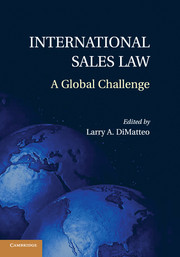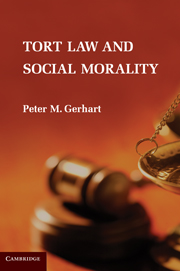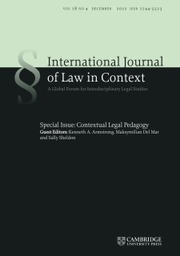Contract Law and Social Morality
- Author: Peter M. Gerhart, Case Western Reserve University, Ohio
- Date Published: August 2022
- availability: Not yet published - available from October 2024
- format: Paperback
- isbn: 9781316501986
Paperback
Other available formats:
Hardback, eBook
Looking for an inspection copy?
This title is not currently available for inspection. However, if you are interested in the title for your course we can consider offering an inspection copy. To register your interest please contact [email protected] providing details of the course you are teaching.
-
When people in a relationship disagree about their obligations to each other, they need to rely on a method of reasoning that allows the relationship to flourish while advancing each person's private projects. This book presents a method of reasoning that reflects how people reason through disagreements and how courts create doctrine by reasoning about the obligations arising from the relationship. Built on the ideal of the other-regarding person, Contract Law and Social Morality displays a method of reasoning that allows one person to integrate their personal interests with the interests of another, determining how divergent interests can be balanced against each other. Called values-balancing reasoning, this methodology makes transparent the values at stake in a disagreement, and provides a neutral and objective way to identify and evaluate the trade-offs that are required if the relationship is to be sustained or terminated justly.
Read more- Introduces a method of reasoning about contractual obligations that is not restricted by doctrine to demonstrate a unified theory of obligations that undergirds torts, contracts, and property
- Suggests a method of reasoning that integrates deontic and consequentialist thought that breaks down barriers that separate moral and economic reasoning and allows scholars to work across disciplinary boundaries
- Identifies factors and values that determine legal doctrine in order to increase transparency by allowing lawyers and scholars to identify and evaluate the factors and values that support doctrinal implementation and evolution
Customer reviews
Not yet reviewed
Be the first to review
Review was not posted due to profanity
×Product details
- Date Published: August 2022
- format: Paperback
- isbn: 9781316501986
- length: 231 pages
- dimensions: 229 x 152 x 12 mm
- weight: 0.318kg
- availability: Not yet published - available from October 2024
Table of Contents
Introduction: Understanding implied obligations: reasoning and methodology
Part I. Grounds for a Supplemental Approach:
1. Individuals and relationships
2. Authority's limits
3. Promises and obligations
4. Maximization and cooperation
Part II. Values-balancing Legal Reasoning:
5. The foundations of value-balancing legal reasoning
6. The scope of obligations
7. The source of obligations
8. Relationality redux: law on the ground and law on the books
Part III. Applications:
9. Legal enforceability: formation
10. Performance obligations: methodological issues
11. Performance obligations: the values-balancing approach
12. Consumer contracts and standard terms
13. Excused performance and risk allocation
14. Remedies
Conclusion.
Sorry, this resource is locked
Please register or sign in to request access. If you are having problems accessing these resources please email [email protected]
Register Sign in» Proceed
You are now leaving the Cambridge University Press website. Your eBook purchase and download will be completed by our partner www.ebooks.com. Please see the permission section of the www.ebooks.com catalogue page for details of the print & copy limits on our eBooks.
Continue ×Are you sure you want to delete your account?
This cannot be undone.
Thank you for your feedback which will help us improve our service.
If you requested a response, we will make sure to get back to you shortly.
×










